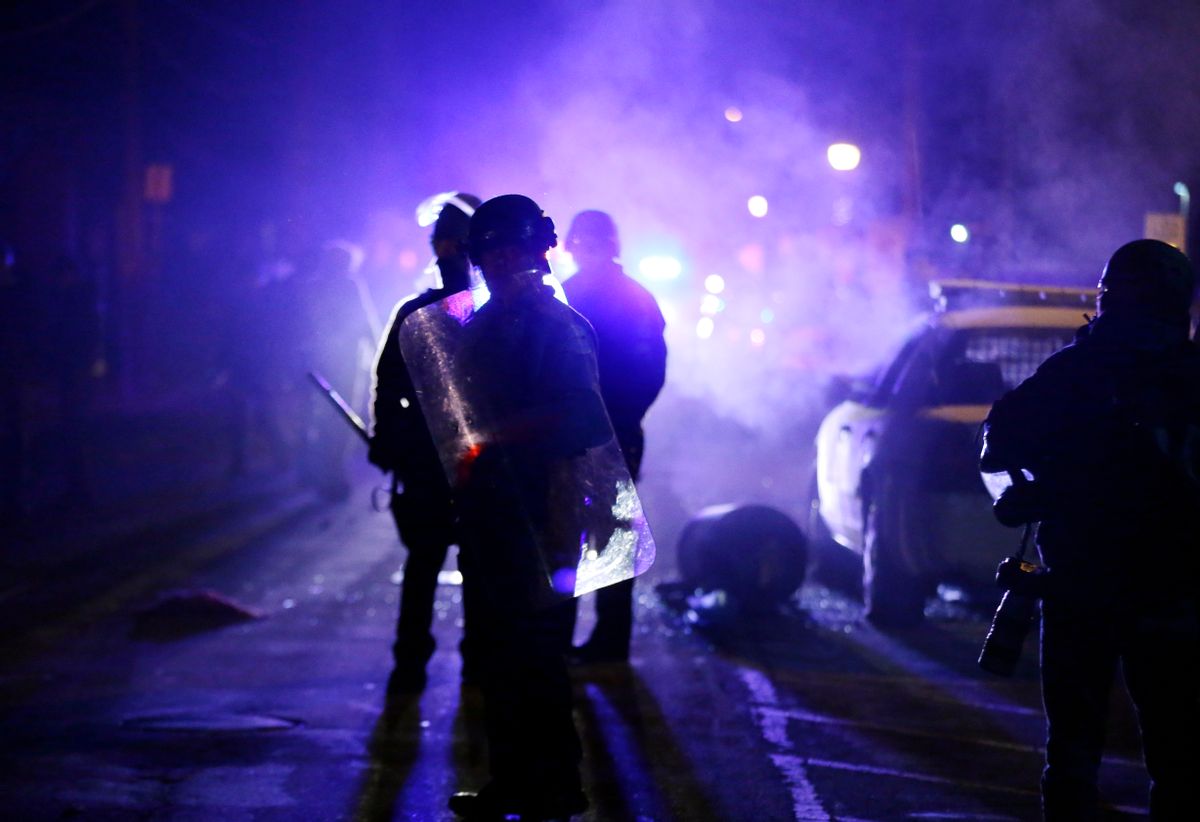This article was originally published on The Conversation. Read the original article.
Keisha N. Blain, University of Iowa and Ibram X. Kendi, University of Florida
On Oct. 9, 2016, Hillary Clinton and Donald Trump will come together for the second presidential debate – taking the stage only eight miles from Ferguson, Missouri.
Since the police shooting of Michael Brown in Ferguson on Aug. 9, 2014, the greater St. Louis area has been the epicenter of a national discussion – sometimes loud, often heated – about police violence.
This presidential debate should take up that discussion about race and policing – not only because of the significance of the location but also because of the timing. The town hall style debate comes after weeks of unrest in cities across the country, following the police shootings of Tyree King in Columbus, Ohio, Terence Crutcher in Tulsa, Oklahoma, Keith Lamont Scott in Charlotte, North Carolina and Alfred Olango in El Cajon, California.
These incidents have once again brought to the surface the systemic problem of police violence in black communities. Today, black teens are 21 times more likely to be shot and killed by the police than their white counterparts. As several historians have recently acknowledged, black Americans die at the hands of police at a rate that is almost equivalent to the number of documented lynchings during the early 20th century.
This issue has received international attention. A recent report by one U.N. Working Group of Experts stated, “Contemporary police killings and the trauma that they create are reminiscent of the past racial terror of lynching.” This year alone, almost 200 black people have been killed by police – a figure that represents only documented and reported incidents.
These staggering statistics underscore the urgent need for Hillary Clinton and Donald Trump to move beyond symbolic gestures and instead clearly articulate how they intend to address this issue if elected president of the United States.
But what can be done by the next president? This is a question that concerns us as black millennials and as historians who write about American racism.
A blueprint for action
“A Vision for Black Lives,” the comprehensive list of demands released by the Movement for Black Lives (M4BL), provides one blueprint for how the next U.S. president can address the issue of race and policing. The M4BL is a coalition of more than 50 organizations across the country, mostly led by black millennials who support Black Lives Matter (BLM).
Originally released on Aug. 1, 2016, “A Vision for Black Lives,” includes six policy demands that seek to bring an end to anti-black racism and state-sanctioned violence in black communities. The activists call for “an end to the war on black people,” arguing that black youth have been criminalized and dehumanized in all areas of society.
They also demand “reparations for past and continuing harms” and “investments in the education, health and safety of Black people.” Reflecting the influence of black power and black nationalist movements of the 20th century, M4BL activists emphasize the need for economic justice, community control and black political power.
“In recent years,” the platform notes, “we have taken to the streets, launched massive campaigns, and impacted elections, but our elected leaders have failed to address the legitimate demands of our Movement. We can no longer wait.”
Yet, we have all been forced to wait as public officials continue to ignore these demands. Two months have passed since the release of “A Vision for Black Lives” and neither Trump nor Clinton have directly or concretely offered a response.
Regardless of one’s point of view, there is no denying that the next U.S. president must have a plan to address race and policing in a more tangible and extended fashion than in the first debate. No doubt many Americans – including thousands of activists who support the M4BL platform – will be expecting both candidates to confront this critical issue.
Trump continues an uphill battle to attract black voters, with as few as 6 percent currently supporting him. Clinton is still struggling to gain the support of black and non-black millennials – a voting bloc she will need to win this election.
Trump’s emphasis on “law and order” policies like a nationwide stop-and-frisk campaign and his dismissal of the BLM movement all suggest he is uninterested in proposing sweeping policy changes to stem police violence. But, he is not alone. Hillary Clinton has publicly supported BLM but ignored the movement’s recently released platform – even after scolding the activists last summer for not having “a plan” she could advance.
Both candidates have an opportunity in the upcoming debate to lay out a clear plan and vision for ending the unjust police killings of black people in the United States. While presidential debate topics are vast and the challenges facing the nation are many, the issue of police violence is one of the most critical domestic challenges of our time. It should not be ignored during the next debate – in St. Louis, of all places.
![]()
Keisha N. Blain, Assistant Professor of History, University of Iowa and Ibram X. Kendi, Assistant Professor of African American History, University of Florida

Shares